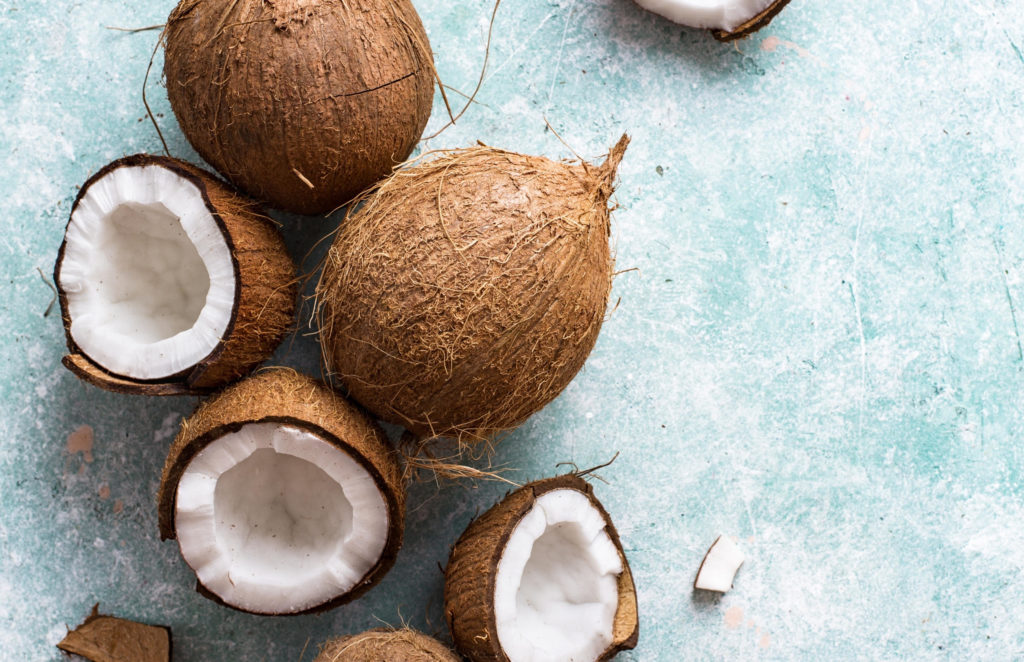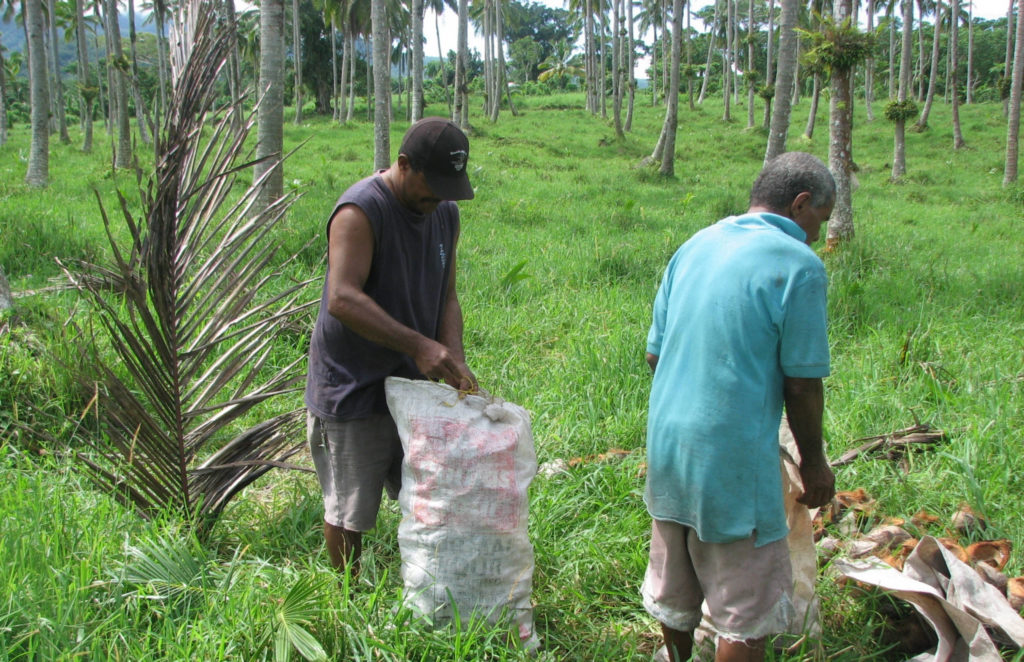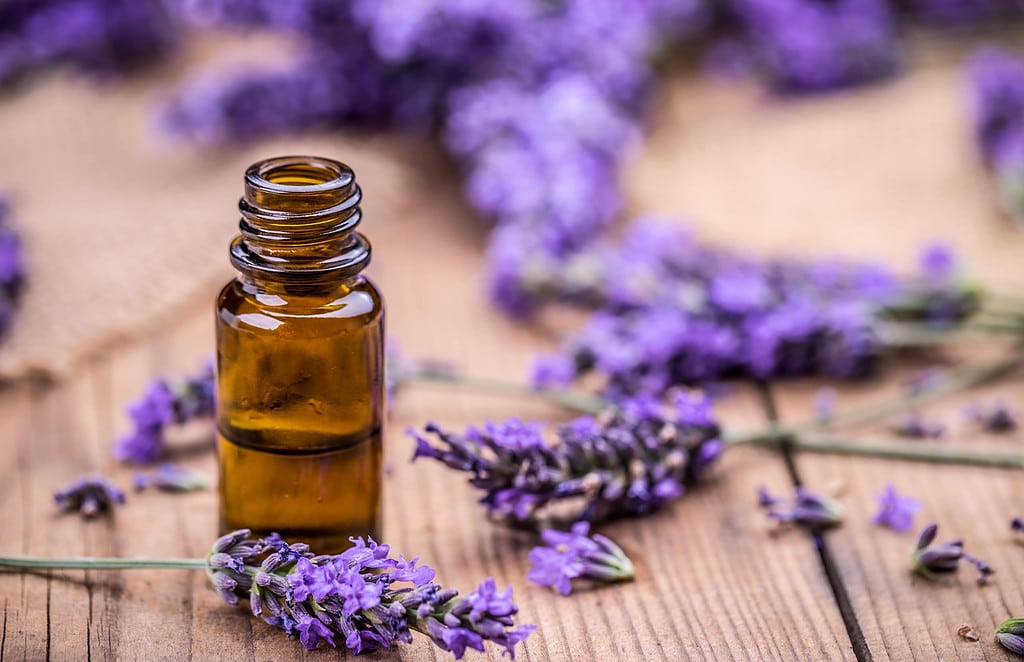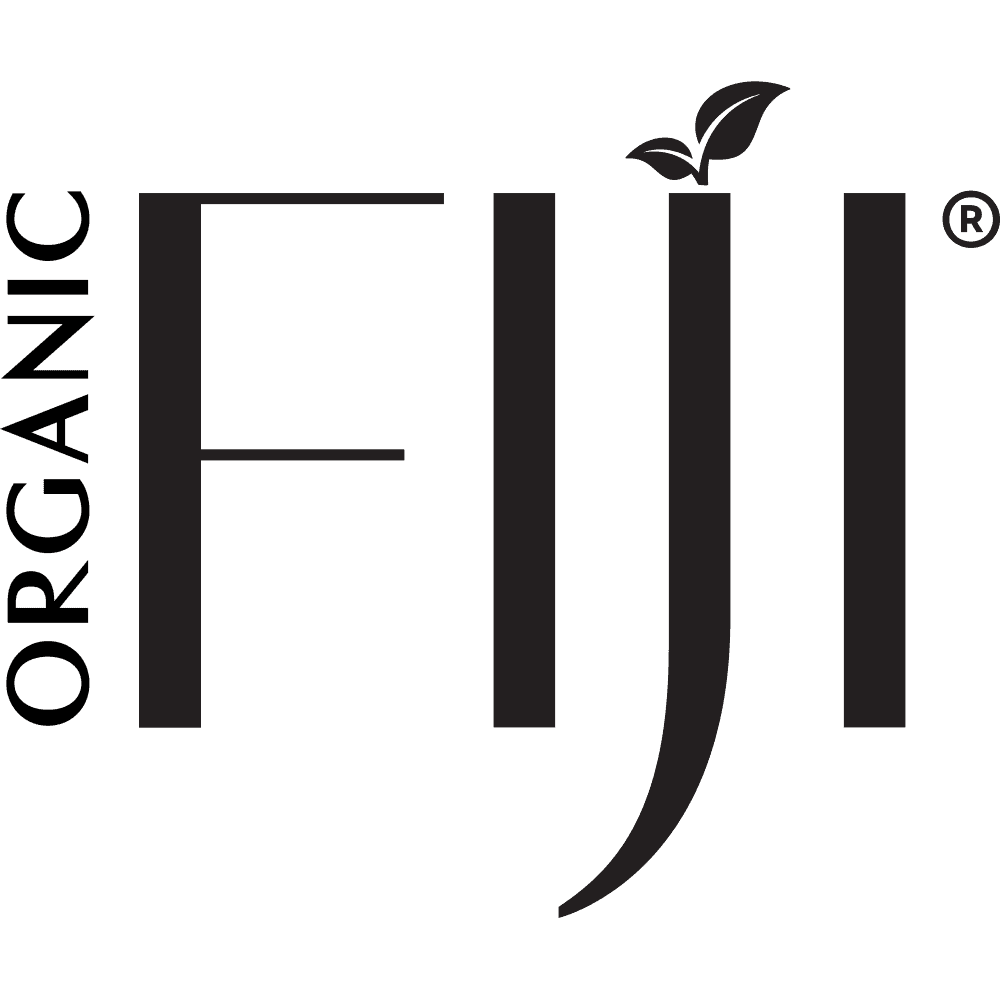Ingredients
Our Primary Active Ingredients

Organic, Raw Coconut Oil
Coconut culture:
The coconut (cocos nucifera) tree is found in all tropical regions of the world and thrives in the unique ecosystems that islands provide. Islanders have harvested different parts of the bountiful coconut tree, sometimes known as the tree of life, for thousands of years. You can use every part of the coconut tree, so it is honored as a precious gift from the Earth. Mindful and minimalist practices ensure nothing is wasted – the shell, leaves, meat (copra), milk, water, husks, and oil are all utilized! It provides materials and ingredients for nutrition, personal care, cleaning, crafting, fuel, instruments, building materials, food for animals, and much more.
Many tropical cultures celebrate the coconut as a divine fruit and use it in ceremonies and rituals. Coconut oil in particular is known as the most valuable part of the coconut and even has the nickname Mother’s Milk. This is because both are made up of common nutritional elements, such as their medium chain fatty acids (MCFA). It is also a play on words, ‘Mother’ being the Mother Earth and ‘Milk’ being the coconut oil. Both rich in natural benefits for the whole body.

Our coconut plantation:
The raw, organic coconut oil we infuse into all our products comes from a special coconut plantation in the South Pacific. It’s unique balance of sunshine and rain combines with rich, nutrient dense soil and ancient coconut tree harvesting methods to produce the premium, finest quality coconut oil that we use in our entire range of products. The coconuts are left to fall from the tree when they are ready, always on island time. The plantation provides a clean, sustainable and environmentally friendly source of energy for the estate and the surrounding communities by burning the discarded coconut husks – clean and smoke-free! It operates under fair trade ethics, selling the coconut oil at market price, offering fair wages to employees and even giving each plantation family a home and an acre of land to grow food. This plantation not only produces a valuable ingredient that offers so many benefits but is also socially responsible for its working actions.
Coconut oil benefits:
Coconut oil’s unique molecular structure consisting of medium-chain-triglycerides, lauric acid and fatty acids make it so much more than just a natural moisturizing agent! It is packed with holistic healing properties that can treat a multitude of skin conditions by offering antibacterial, antiviral, antifungal, and even anti-inflammatory qualities. Capric acid, another fatty acid found in coconut oil, also has antimicrobial properties. In addition, coconut oil’s unique makeup can penetrate multiple layers of the skin, encourage skin elasticity, promote cell regeneration and even encourage collagen production.

Our coconut oil standards:
It is important to explain that not all coconut oil is created equal. The grade of coconut oil you choose directly dictates how well that oil will absorb into the skin, how many natural benefits are left in the oil, and even the nutritional value and taste of the oil. We choose the highest grade of coconut oil from which to infuse our products with. Here are our coconut oil standards, so as a consumer you can make a more informed and empowered choice.
Organic Fiji’s coconut oil is USDA Certified Organic by one of the oldest and most accredited certifying agents, Oregon Tilth. Being certified organic means that the ingredient is grown without the use of synthetic pesticides, sewage sludge, synthetic fertilizers, genetically modified organisms, bioengineering, or ionizing radiation. While the term “natural” can be used on any product label without third party verification, a product must be certified and frequently regulated if it is to be labeled as certified organic. There is also a focus on farmers using renewable resources and mimicking natural ecosystems to conserve and maintain the soil and water without polluting the environment.
The USDA explains that “Organic certification requires that farmers and handlers document their processes and get inspected every year. Organic on-site inspections account for every component of the operation. Tracing organic products from start to finish is part of the USDA organic promise.”
The USDA Organic Program was created with food in mind, but personal care products can indeed comply. Body care products that are USDA Certified Organic do not have a specialized set of rules separate to other products to accommodate for topical application instead of consumption (which is the case with many other private organic certifications). The USDA explains that “if a cosmetic, body care product, or personal care product contains or is made up of agricultural ingredients, and can meet the USDA organic production, handling, processing and labeling standards, it may be eligible to be certified under the National Organic Program regulations”. Other private, non regulated certification programs have the ability to separate the food and body care category standards, but we believe what you put on your body is as important as what you put into it. Check out all of our USDA Certified Organic products.
Organic Fiji’s coconut oil is certified Kosher by Star-K. A Kosher certification is the stamp of approval by Rabbis, food technologists, and field experts who verify that the products ingredients, production facility and actual production have no trace of non kosher substances and adhere to all Kosher Law requirements. When enjoying our delicious Culinary Coconut Oil you can be assured it’s certified Kosher!
Organic Fiji’s coconut oil is cold-pressed which means that no heat was used in the extraction process. Cold-pressing is the beneficial processing method used to extract oil from the copra (coconut meat) without losing any of the natural benefits, keeping the highest quantity of nutrients. If coconut oil is not cold-pressed, you can assume it has been mechanically refined with high heat or even chemicals.
Organic Fiji’s coconut oil is extra-virgin. This means that not only is it the first press of the copra, but it is also free of bleaching, deodorizing and refining. This offers you the most concentrated natural benefits from the coconut oil without dilution.
Organic Fiji’s coconut oil is unrefined. This means that it has been pressed from coconut meat and undergone no further processing. It will become solid at temperatures below 76F/24C. Unrefined coconut oil has not been mixed with a degumming agent, neutralized with sodium hydroxide, heat-processed, bleached, or deodorized like refined coconut oil has. It stays in its valuable natural form, retaining its holistic benefits, delicious taste, and providing a gentler option for skin and hair.
Organic Fiji’s coconut oil is made from fresh coconuts. Never frozen or dried. This means you are getting the best version of the oil, without deterioration of quality, nutrients, flavor or molecular structure.
Organic Fiji’s coconut oil is raw. This means that it has not been treated or processed and retains its natural state. Exactly how nature intended!
For it’s naturally healing benefits, hydrating properties, bountiful offerings and cherished place in South Pacific history, we are proud to infuse this premium coconut oil into all of our clean body products.
Tip – Liquefying raw coconut oil: If the environment where you store your Organic Coconut Oil is under 76F/24C degrees, it will be in a solid state. This is a totally normal personality trait of truly raw Coconut Oil. If you prefer to use your Coconut Oil in its liquid form, it’s quick and easy to warm up these sunshine-loving coconuts. Do not microwave! Place the closed jar in the sink or a bowl of warm water. Once the container has warmed for a few minutes, open the jar and enjoy. Learn more about liquefying coconut oil.
Organic Essential Oils and Botanicals
Naturally curate your wellness rituals:
Pure essential oils and botanicals can help you achieve your unique skin care goals, as well as offering you a dreamy selection of aromas. Customize your clean body care products with one of our 12 inviting variations. So much more than just an aroma, each of our organic and natural blends offer unique benefits for your whole body.
What are essential oils?
Essential oils are concentrated plant extracts derived from steam distilling or cold-pressing flowers, stems, leaves, bark, roots, seeds, or other parts of a plant. Dr Yufang Lin, MD, from the Center of Integrated Medicine explains. “Plants are made of structural materials and phytochemicals. These chemicals have properties that not only benefit the plant but benefit people, too”. Because of the large amount of plant material that it takes to create the extracts, essential oils can be powerful botanical medicines. (For example it takes around 250 lbs of the lavender plant to make just 1 lb of lavender essential oil).
Essential oils embody the unique essence of a plant. Elizabeth Ko, MD, medical director of the UCLA Health Integrative Medicine Collaborative explains that “essential oils are quickly absorbed by receptors that are linked to the limbic system, which controls heart rate, blood pressure, breathing, and stress. Each plant’s essence has a different chemical makeup that affects its smell, absorption, and effect.”
The use of essential oils and botanical extracts has experienced a new wave of mainstream popularity in the last few years, but their natural benefits and healing potential is not something contemporary. The known benefits of these plant extracts date back as far as 4500-6000 BC when Egyptians harnessed these powerful oils not only as beauty treatments but to create tinctures, salves, resins, and ointments to be used in medicinal treatments and spiritual ceremonies too.

Why choose essential oil aromas over synthetic fragrances?
We create our coconut oil infused body care products with the inclusion of essential oils and botanicals, instead of synthetic fragrances or perfume. We do this for three main reasons:
- Because organic and natural botanical extracts do not contain any chemical, toxic or synthetic ingredients and align with our clean, pure, and plant-based brand mission
- Because organic and natural botanical extracts contain more than just scent, they contain additional healing benefits for skin, hair, beauty and overall wellness
- Because organic and natural botanical extracts as aromas simply smell better than imitating perfumes
What’s the difference? Essential oils and botanical extracts are derived from plants for a multitude of benefits. Synthetic ‘fragrances’ or ‘perfumes’ are an unknown mixture of undisclosed ingredients created purely as a scent and can be found in most mainstream beauty, cleaning, and household products. Many brands that encourage greenwashing will replace an essential oil known for its unique benefits with a synthetic imitation of the oil and still call it ‘natural’ or ‘aromatherapy’. Be sure to read your ingredients listings to clarify.
The EWG states that “When you see ‘fragrance’ on a personal care product’s label, read it as “hidden chemicals. A major loophole in FDA’s federal law lets manufacturers include nearly any ingredient in their products under the name “fragrance” without actually listing the chemical.” Chemical ingredients that hide behind the umbrella term “fragrance” have been linked to hormone disruption, reproductive issues, allergy triggers, and more. By choosing organic and natural essential oils and botanical extracts instead of chemical fragrances, you are choosing to use the power of nature and avoid the potentially toxic ingredients lurking in mainstream body care.
Our standards of essential oils:
Not all essential oils are created equally, and not all essential oils behold the same healing benefits. Our essential oil ingredients are USDA Certified Organic and natural, free of filler materials, free of chemicals and synthetics, free of phthalates and exactly how nature intended – packed full of plant-power!
As well as committing to the highest quality oils, we also source from farmers dedicated to incorporating green technology, like using less water for plant growth, utilizing solar energy, and using fuels that reduce carbon output.
Ingredients We Say No To
We source the cleanest of ingredients from nature’s apothecary to create our body care products. What we leave out of our products is just as important as what we put in. We don’t have any nasty ingredients lurking in our transparent ingredient listings. We say no to all synthetic, chemical, toxic and harsh ingredients. Click here to see Organic Fiji’s ingredient listings on the EWG Skin Deep database.
With transparent information you have more control over what you choose for your body. If you have any questions about our ingredients, get in touch. We’d be happy to chat. You can also read the EWG (Environmental Working Group)’s tips on picking safer body care products.
Additional resources to explore: 13 ingredients To Avoid In Personal Care, The Dirty Dozen Cosmetic Chemicals To Avoid and Chemicals Of Concern.

| We Say No To: | Because Of Negative Links To: |
|---|---|
| Acrylates | Cancer, reproductive toxicity and organ system toxicity |
| Aluminum | Nervous system |
| Artificial Colors Or Dyes | Allergies, cancer and nervous system |
| Benzophenone | Cancer |
| Butylated | Organ system toxicity and endocrine disruption |
| Carcinogens | Cancer |
| Coal Tar Dye | Allergies, nausea, asthma and dermatitis |
| Dea (Diethanolamine) | Skin irritation, cancer, thyroid effects and environmental concerns |
| Dibutyl | Endocrine disruptor and reproductive effects |
| Dioxane, 1-4 | Cancer |
| Dmdm Hydantoin And Imidazolidinyl Urea | Toxic contaminants |
| Ethoxylated | Cancer |
| Formaldehyde | Allergies, cancer and nervous system |
| Gluten | Gluten sensitivities |
| Glycols; Propylene Glycol (Pg), Butylene Glycol, Methylene Glycol | Skin irritation and organic toxicity |
| Gmos | Toxic contaminants |
| Homosalate | Endocrine disruptor |
| Hydroquinone | Cancer and organic system toxicity |
| Isobutyl | Skin irritant and organic system toxicity |
| M- And O-phenylenediamine | Allergies |
| Mea (Monoethanolamine) | Organ system toxicity, cancer and environmental concerns |
| Mercury | Nervous, digestive and immune system disruptor |
| Methylchloroisothiazolinone And Methylisothiazolinone | Nervous system effects |
| Microplastics And Microbeads | Endocrine effects, cancer and environmental issues |
| Mineral Oil | Pore clogging and skin issues |
| Nanomaterials | Toxic contaminants |
| Nitrosamines | Cancer, endocrine disruption, organ system toxicity |
| Octinoxate | Endocrine disruption, reproductive and developmental toxicity, organ system toxicity |
| Parabens Or “-paraben” | Hormone and reproductive effects |
| PEGs and “-eth” | Toxic contaminants |
| Petrolatum, Petroleum Jelly | Cancer |
| Pfas (Polytetrafluoroethylene) | Cancer, reproductive toxicity, endocrine disruption and environmental bioaccumulation |
| Phenoxyethanol | Allergies, nervous system effects |
| Phthalates | Endocrine and reproductive effects |
| Polyacrylamide | Reproductive and developmental toxicity |
| Preservatives | Cancer, endocrine disruption, developmental toxicity, reproductive toxicity, irritation |
| Quaternium 15 | Allergies and skin irritant |
| Siloxanes | Hormone disruptor, reproductive effects and environmental issues |
| Sodium Lauryl Or Laureth Sulfate | Skin damage and toxic contaminants |
| Silicones | Bioaccumulative and organ system toxicity |
| Synthetic Fragrances Or Perfumes | Allergies, cancer and nervous system |
| Talc | Allergies, cancer and nervous system |
| Triclosan And Triclocarban | Thyroid and environmental concerns |
| Triethanolamine (Tea) | Allergies, toxic contaminants |












